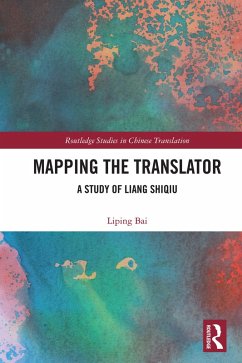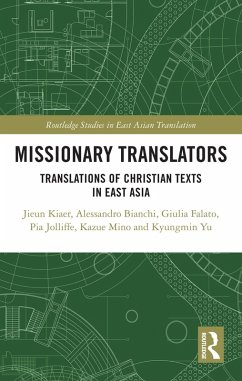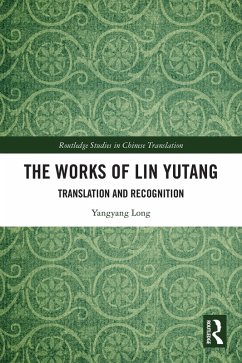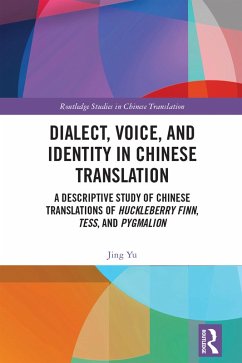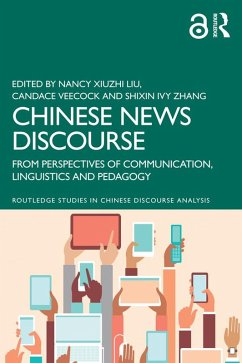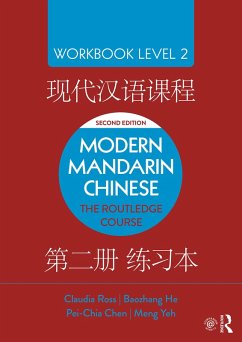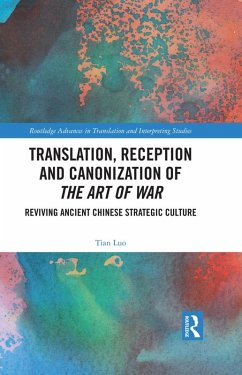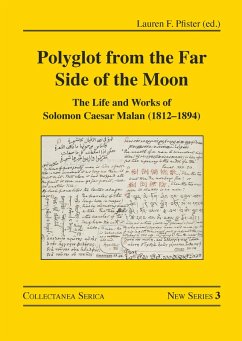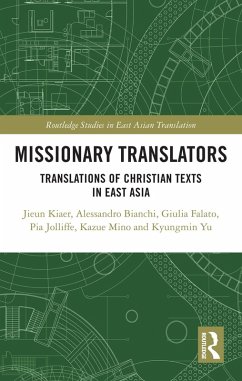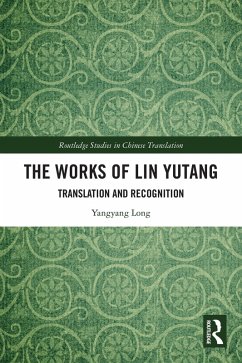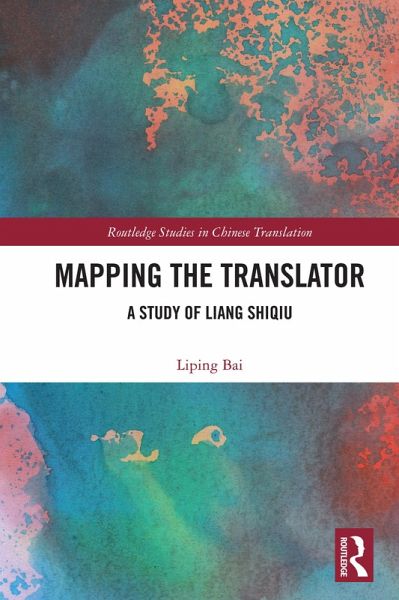
Mapping the Translator (eBook, PDF)
A Study of Liang Shiqiu
Versandkostenfrei!
Sofort per Download lieferbar
39,95 €
inkl. MwSt.
Weitere Ausgaben:

PAYBACK Punkte
20 °P sammeln!
In Mapping the Translator: A Study of Liang Shiqiu, the writer studies Liang Shiqiu (1903-1987), who was not only a famous writer and important critic but also one of the most prominent translators in China in the 20th century, most notably the first Chinese to finish a translation of The Complete Works of William Shakespeare.Based on primary sources, this research covers issues related to the historical, cultural, cognitive and sociological dimensions of translator studies. It investigates Liang's translation poetics; the influences of possible patrons and professionals on him; the relationsh...
In Mapping the Translator: A Study of Liang Shiqiu, the writer studies Liang Shiqiu (1903-1987), who was not only a famous writer and important critic but also one of the most prominent translators in China in the 20th century, most notably the first Chinese to finish a translation of The Complete Works of William Shakespeare.
Based on primary sources, this research covers issues related to the historical, cultural, cognitive and sociological dimensions of translator studies. It investigates Liang's translation poetics; the influences of possible patrons and professionals on him; the relationship between Liang's ideology, the dominant ideology and his translation; Liang's debates with Lu Xun about and beyond translation criteria, and whether there is inconsistency or possible contradiction in Liang's translation poetics. This book also analyses the similarities and differences between Liang Shiqiu and Wu Mi-two followers of Irving Babbitt-in terms of translation poetics, and further explores the reasons leading to such differences.
This book is targeted at scholars and students, both undergraduate and postgraduate, in the fields of translation studies, Asian studies, Chinese studies, and literary studies.
Based on primary sources, this research covers issues related to the historical, cultural, cognitive and sociological dimensions of translator studies. It investigates Liang's translation poetics; the influences of possible patrons and professionals on him; the relationship between Liang's ideology, the dominant ideology and his translation; Liang's debates with Lu Xun about and beyond translation criteria, and whether there is inconsistency or possible contradiction in Liang's translation poetics. This book also analyses the similarities and differences between Liang Shiqiu and Wu Mi-two followers of Irving Babbitt-in terms of translation poetics, and further explores the reasons leading to such differences.
This book is targeted at scholars and students, both undergraduate and postgraduate, in the fields of translation studies, Asian studies, Chinese studies, and literary studies.
Dieser Download kann aus rechtlichen Gründen nur mit Rechnungsadresse in A, B, BG, CY, CZ, D, DK, EW, E, FIN, F, GR, HR, H, IRL, I, LT, L, LR, M, NL, PL, P, R, S, SLO, SK ausgeliefert werden.




